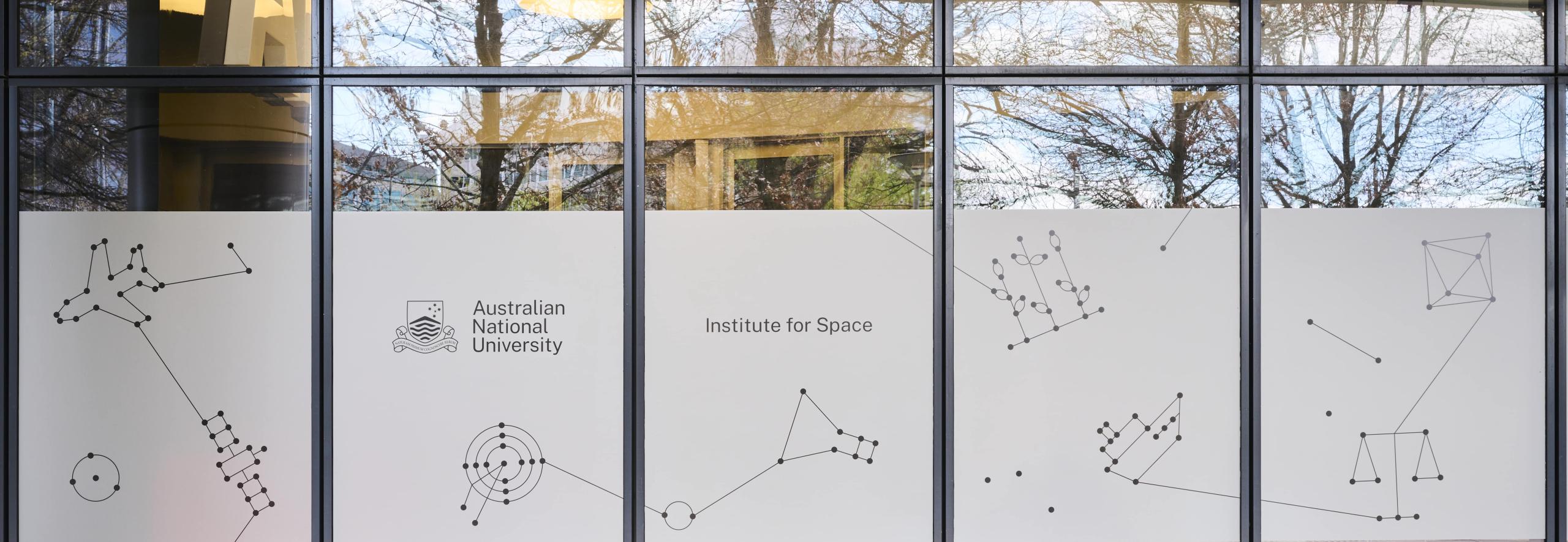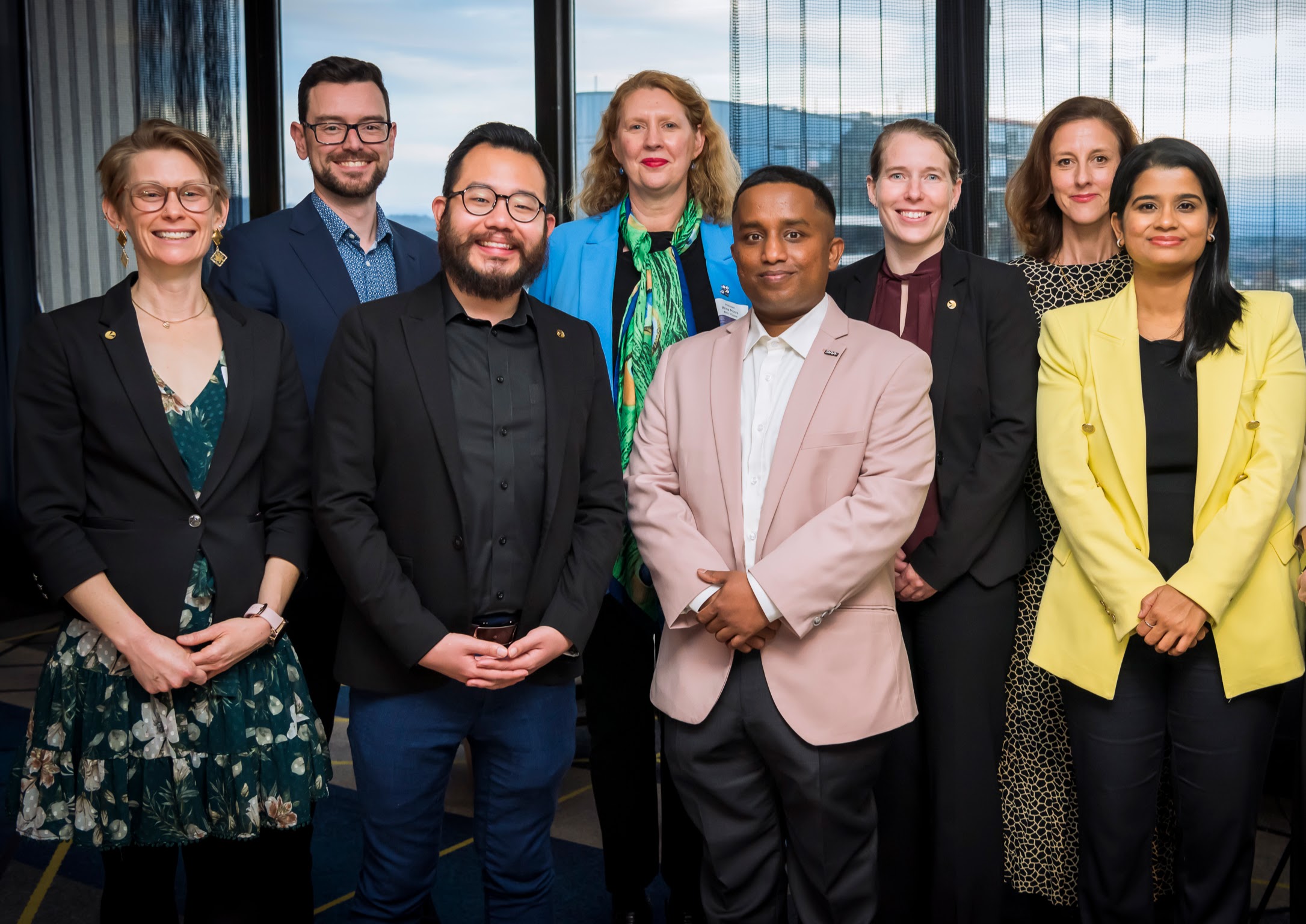
What we do
Space is more than the traditional image of astronauts exploring our solar system or astronomers looking through telescopes. Space is about innovation, technological advancement, and making life better for people on Earth. It’s about satellites and the valuable data they can collect from space, space health and medicine advances that translate to your local hospital, and rovers and robotics that work off-world and in places on Earth that humans cannot reach.
InSpace supports and uplifts a dynamic portfolio of space-related research projects with national significance and catalyses space research under three broad themes:

Space Sustainability
Prioritising space and Earth sustainability to help ensure space technologies are available for years to come.

Space Education
Recognising the importance that all industries be educated and upskilled on the impact of space research on our everyday lives.

Space for Asia and the Pacific
Committed to strong regional relationships and promoting economic growth, stability, and technological progress.
Meet the mission teams
Mission Specialists from across disciplines at ANU are applying their world-class expertise to space-related research to solve society’s biggest challenges. The Mission Control team translates that research by building strong partnerships and commercial connections with national and international space agencies and companies.

Meet Mission Control
Translating space research at ANU by developing new opportunities for cross-disciplinary collaboration with the global space industry.

Meet the Mission Specialists
Applying world-class expertise in space-related research across disciplines at ANU.
Board
A diverse board of internal and external members governs and approves the entrepreneurial work, strategic direction, space research and innovation investments, and budget for InSpace.
- Dr Sue Barrell AO FTSE, former Chief Scientist, Bureau of Meteorology – Chair of the ANU InSpace Board
- Professor Tim Senden – Pro Vice-Chancellor Research Infrastructure and Entities, The Australian National University
- Professor Helen Sullivan – Dean, College of Asia and the Pacific, The Australian National University
- Professor Kiaran Kirk – Dean, College of Science and Medicine, The Australian National University
- The Hon Kate Lundy – former Senator, ACT Federal Parliament, 1996–2015, Company Director 2015–present
- Professor Ray Mahoney – Indigenous Science Research Director & Principal Research Scientist, Australian e-Health Research Centre, CSIRO
We will be recruiting two further members later in 2025 to ensure multiple voices and professional perspectives are represented.
Who we work with
ANU InSpace works with Academia, Industry, Government, and Community partners to catalyse space research. We engage with the global space industry, bringing cross-disciplinary capability together to solve national challenges and enable ANU and Australia to contribute to global initiatives such as climate and water resilience, remote healthcare access, and regional security.
We work with State and Federal governments and international space agencies across the world including NASA (United States), ESA (Europe), DLR (Germany), NZSA (New Zealand), and JAXA (Japan).
View our Who we work with Quadrant to see our Industry, Government, and Academic partners.
InSpace team members are advocates for space innovation. They represent ANU, its space capabilities, and world-leading research expertise as members and leaders of influential groups that are shaping the future of Australia’s space industry.
InSpace is involved with five of the Australian Space Agency’s Technical Advisory Groups (TAGs), which shape 10-year, national roadmaps for the following areas:
- Earth Observation
- Space Situational Awareness
- Advanced Communications
- Space Medicine and Life Sciences
- Positioning, Navigation and Timing
InSpace TAG members also contributed to the development of the ASA Communications Technologies and Services Technical Roadmap, the ASA Earth Observation Technical Roadmap, and the ASA Robotics and Automation Roadmap.
InSpace Director Professor Anna Moore is a member of the Australian Space Industry Leaders Forum. The forum provides input into Australia’s national civil space strategy and policy, along with industry representatives and associations and other non-government space organisations.
Associate Professor Francis Bennet is a member of the National Committee for Space and Radio Science (NCSRS), which aims to foster the space and radio sciences in Australia. InSpace Director Professor Anna Moore is an observer member. NCSRS links Australian space and radio scientists with relevant scientific societies and overseas space and radio scientists. The NCSRS published Australia in Space: a decadal plan for Australian space science 2021-2030, with recommendations and strategies for advancing national interests and priorities in space, growing the innovation economy, developing sovereign capability, and improving the lives of all Australians.
Associate Professor Francis Bennet is an observer member of the CCSDS Optical Communications Standards working group, which helps to develop standards for optical communications that support optical communication systems for both Low Earth Orbit and Deep Space robotic and human-rated spacecraft.
Associate Professor Marta Yebra is a member of the Working Group on Disasters (Wildfire), part of the Committee on Earth Observation Satellites. The global group is chaired by NASA and explores collaborative pathways for the use of satellite imagery for disaster risk reduction, including risk mitigation of wildfires in Canada, Australia, Europe, and the U.S.
InSpace is a member of The Space Industry Association of Australia (SIAA), the national peak body for the space industry in Australia.
InSpace Director Professor Anna Moore is a member of The American Chamber of Commerce in Australia Space Committee, which supports the development of the Australian space sector.